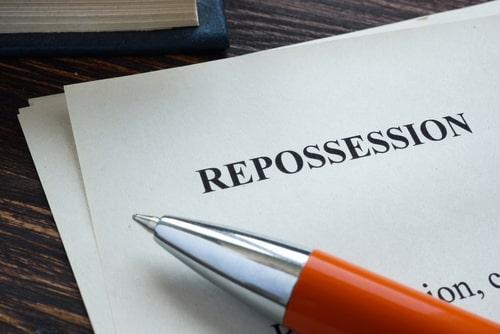How Will Filing for Bankruptcy Affect a Repossession?
 Debts can be difficult to deal with in any situation, but in some cases, the failure to pay what is owed could result in the repossession of a vehicle or other property. While bankruptcy may be an option if you are struggling with debt, determining how a bankruptcy filing will affect a repossession is not always easy. Will filing for bankruptcy stop a repossession? Will it allow you to recover property that has already been repossessed? By understanding the procedures followed during bankruptcy, you can make sure you follow the correct steps to protect yourself and receive relief from your debts.
Debts can be difficult to deal with in any situation, but in some cases, the failure to pay what is owed could result in the repossession of a vehicle or other property. While bankruptcy may be an option if you are struggling with debt, determining how a bankruptcy filing will affect a repossession is not always easy. Will filing for bankruptcy stop a repossession? Will it allow you to recover property that has already been repossessed? By understanding the procedures followed during bankruptcy, you can make sure you follow the correct steps to protect yourself and receive relief from your debts.
Preventing Repossession Through the Automatic Stay
When you begin the bankruptcy process, an automatic stay will go into effect as soon as your bankruptcy petition is filed. The automatic stay is a court order that blocks creditors from taking any collection actions against you, including repossessing your property. By filing for bankruptcy as soon as you learn that a creditor plans to repossess a vehicle or other property, you can prevent the repossession and determine how to address your outstanding debts. As long as the automatic stay is in place, creditors will be unable to repossess your property. However, a creditor may ask for the automatic stay to be lifted if they believe that they may suffer losses due to the destruction of property, so it is important to move forward with the bankruptcy process and make sure you address your debts correctly with the help of an attorney.
Recovering Property Following a Repossession
If your vehicle has already been repossessed, you may be able to get it back after you file for bankruptcy. However, you will need to act quickly to do so, since once a creditor sells property that has been repossessed, it can no longer be recovered. After filing for bankruptcy, the equity you own in your vehicle will be part of the bankruptcy estate, and a creditor may be required to return it to you during the bankruptcy process as you determine how to address your debts, the assets you own, and other issues.
The type of bankruptcy you file may determine how repossessions will be handled. In a Chapter 7 bankruptcy, you may be required to turn over certain assets. However, exemptions will apply, and in North Carolina, up to $3,500 of equity in a vehicle can be exempted from liquidation. An exemption of up to $5,000 will also apply to household property, and this may protect items such as appliances from being repossessed. These exemptions may allow you to keep your vehicle or other property, although if you still owe money on an auto loan or other type of loan, you will need to become current on these payments in order to maintain possession of the property after completing your bankruptcy case.
In a Chapter 13 bankruptcy, your debts will be restructured so that you can repay some of what is owed over three to five years through a repayment plan. If you include an auto loan or other loans in your repayment plan, you will be able to catch up on payments, and you can avoid the repossession of your car or other property. However, if you fall behind on your payments, the creditor may take action to repossess your vehicle, so it is important to make sure you will have the financial means to complete your repayment plan.
Contact Our Mecklenberg County Repossession Defense Attorney
Filing for bankruptcy can stop a repossession from happening, or it may allow you to get a repossessed vehicle back while you determine how to handle your debts. If you are concerned about the potential loss of your property, an experienced Belmont bankruptcy lawyer at Blossom Law PLLC can help you understand your best options for receiving debt relief. We will advise you on the best steps to take to avoid repossessions and ensure that you will be able to eliminate your debts and achieve ongoing financial success. Call us at 704-256-7766 to set up a free consultation today.
Sources:
https://www.law.cornell.edu/uscode/text/11/542


 704-BLOSSOM
704-BLOSSOM

